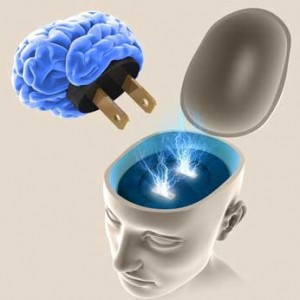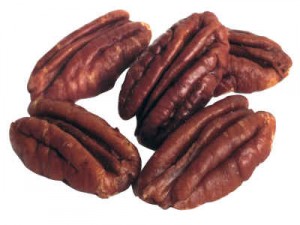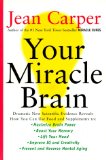Multivitamin Improves Memory in Older Men
 That is the conclusion of one study carried out on 51 men ages 50-74.
That is the conclusion of one study carried out on 51 men ages 50-74.
“The results showed multivitamin supplementation, compared to placebo, significantly improved recognition memory performance, although other cognitive function parameters did not differ between the treatment groups.”
The study goes on to suggest it might also help avoid age-related cognitive decline.
I am interest to hear from readers that use multivitamins to improve brain function or cognitive performance.
Categories: Cognitive Decline, Diet, Memory and Learning, Older Adult Tags: vitamins
The Science of Building a Better Brain
 Newsweek did a great job of summarizing the findings from the cognitive enhancement strategies workshop held at the 2010 annual meeting of the Society of Neuroscience. The article, Can You Build a Better Brain? uses the latest neuroscience to differentiate between techniques that work and those that don’t. Techniques for improving brain function and enhancing cognitive performance that have strong scientific support include:
Newsweek did a great job of summarizing the findings from the cognitive enhancement strategies workshop held at the 2010 annual meeting of the Society of Neuroscience. The article, Can You Build a Better Brain? uses the latest neuroscience to differentiate between techniques that work and those that don’t. Techniques for improving brain function and enhancing cognitive performance that have strong scientific support include:
- Drugs that boost dopamine levels such as caffeine
- Regular aerobic exercise
- Meditation training
- Activities that boost mood and confidence
- Action-oriented video games
- Cognitive training software but only for the tasks done using the software
All of these techniques have been covered in the Next Brain Blog. Techniques that don’t appear to have strong evidence include, and I quote:
“Vitamins B6, B12, and E; beta carotene; folic acid; and the trendy antioxidants called flavenoids are all busts, and the evidence for alcohol, omega-3s (the fatty acids in fish), or having a large social network is weak. The Mediterranean diet is associated with a lower risk of cognitive decline, find observational studies, but that hasn’t been confirmed in more rigorous, randomized controlled studies, and no one knows whether the benefit comes from what the diet includes (olive oil, fish, vegetables, wine) or what it excludes (red meat, refined sugars, dairy fat). Statins don’t help, and neither do estrogen or NSAIDs (aspirin, ibuprofen).”
Although some of these have supporting studies they lack a clear causal connection to brain plasticity or other currently understood mechanism of cognition.
Categories: Other Tags: brain training, exercise, games, meditation, mindfulness, Mindset, vitamins
Nuts Known to Improve Cognition
 Posit Science, a leading provider of brain training software, has a interesting post on Nuts for Brain Health. They claim:
Posit Science, a leading provider of brain training software, has a interesting post on Nuts for Brain Health. They claim:
- Walnuts, almonds and hazelnuts have scientific studies that support claims for brain boosting effects
- Peanuts have preliminary evidence that support their role in brain health
- Other nuts that are often mentioned for brain health including pecans, chestnuts and cashews lack published scientific studies.
A useful summary for those considering including nuts in a Next Brain diet. Interested to hear from readers that eat nuts to improve brain function and cognitive performance.
Categories: Cognitive Decline, Diet, Memory and Learning Tags: vitamins
Our Brains Are Optimized for Ancient Ways
 Found an interesting blog post that reviewed five recent scientific studies on protein SIRT1 and its possible connection to improved brain function and cognitive performance. The post includes 10 steps to enhanced brainpower many of which we have covered in the Next Brain blog. In paraphrased form these include:
Found an interesting blog post that reviewed five recent scientific studies on protein SIRT1 and its possible connection to improved brain function and cognitive performance. The post includes 10 steps to enhanced brainpower many of which we have covered in the Next Brain blog. In paraphrased form these include:
- Eat and exercise like a wild ancient human
- Take supplements including fish oil, vitamin D and resveratrol.
- Eat blueberries, drink coffee or tea and limit alcohol
- Be an aggressive and continious learn
- Get plenty of sleep
The conclusion is:
“The research basically says: to enhance your brain, you should adjust your lifestyle, diet, and use of compounds or drugs to increase levels of SIRT1 in the brain. The target: an enhanced mind — as alert as those of our ancestors — that thinks more clearly, stays smart, and learns longer.”
The underlying theme here is that the lifestyle and diet of wild ancient humans is the context in which much of our brain development occurred. This means our brains are naturally optimized to work best under those conditions. As conditions are radically different today, reproducing the ancient ways as describe above is one strategy for enhancing cognitive performance.
Categories: Ancient Ways, Memory and Learning, Mental Focus Tags: vitamins
Handful of Pecans a Day for Brain Health?
 Making small lifestyle changes can improve brain function and cognitive performance. Often small changes are easy to do and if you make enough of them they should add up and have significant impact. We have documented a number of such changes on the Next Brain Blog but I am always on the lookout for new scientific studies that might suggest more.
Making small lifestyle changes can improve brain function and cognitive performance. Often small changes are easy to do and if you make enough of them they should add up and have significant impact. We have documented a number of such changes on the Next Brain Blog but I am always on the lookout for new scientific studies that might suggest more.
Take for example a recent study in the journal, Current Topics in Nutraceutical Research, reported on here.
“The study, conducted at the Center for Cellular Neurobiology at the University of Massachusetts Lowell, suggests adding pecans to your diet may delay the progression of age-related motor neuron degeneration.”
The work is being done by the vitamin E (antioxidant) in the nuts. Please keep in mind this is a preliminary study done with mice not people. Fortunately, it turns out the pecans are otherwise good for you with many vitamins and minerals and no cholesterol or sodium.
I am interested to hear from readers on other small-step lifestyle changes they have made to improve brain function or cognitive performance.
Categories: Cognitive Decline, Lifestyle Tags: vitamins
Vitamin D May Speed Brain Information Processing
 We get vitamin D mainly from the sun’s UV rays, fatty fish, fortified milk or cereals and supplements like a multi-vitamin. D has been in the news lately because there are widespread deficiencies and growing evidence that it supports brain development in children and improved processing speeds in older adults. But the situation is far from conclusive. As recently reported by the Dana Foundation in Vitamin D and the Brain: More Good News,
We get vitamin D mainly from the sun’s UV rays, fatty fish, fortified milk or cereals and supplements like a multi-vitamin. D has been in the news lately because there are widespread deficiencies and growing evidence that it supports brain development in children and improved processing speeds in older adults. But the situation is far from conclusive. As recently reported by the Dana Foundation in Vitamin D and the Brain: More Good News,
Vitamin D has many roles in regulating brain health, from aiding the development of the brain and nervous system to postponing decline toward the end of life, according to a growing body of research. R. Douglas Shytle and Paula C. Bickford review the field and argue that while it is clear that many people worldwide experience vitamin D deficiency, we need to complete much more research to fully understand the consequences of this deficiency for brain health.
And the research is underway. Watch for additional posts on the importance of D for improving cognitive performance on the Next Brain Blog.
Source: Vitamin D Image
Categories: Child, Cognitive Decline, Mental Focus, Older Adult Tags: vitamins
Vitamins for Cognitive Performance
 I am often asked if there are specific vitamins that are proven to enhance brain and cognitive function. The answer is yes but the level of improvement is not always clear. Vitamins that are generally called out for their brain boosting effects include:
I am often asked if there are specific vitamins that are proven to enhance brain and cognitive function. The answer is yes but the level of improvement is not always clear. Vitamins that are generally called out for their brain boosting effects include:
- B vitamins – memory and brain development
- Antioxidants or vitamins E, C and A (beta carotene) – overall functioning
- Multivitamins – overall functioning
Of course it is not just vitamins that help our brain function well but other supplements (e.g. minerals and fatty acids) and the foods we eat. Diet and supplements will be a frequent topic on the Next Brain Blog.
For a comprehensive overview of how supplements and diet impact brain function I suggest you read (or listen to) Jean Carper’s book, Your Miracle Brain: Dramatic New Scientific Evidence Reveals How You Can Use Food and Supplements To: Maximize Brain Power, Boost Your Memory, Lift Your Mood, Improve IQ and Creativity, Prevent and Reverse Mental Aging.
If you take supplements or have customized your diet to improve cognitive performance please leave a comment and share your results.
Categories: Books, Cognitive Decline, Diet, IQ and EQ, Memory and Learning, Mental Focus Tags: vitamins
